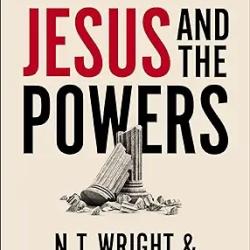THE BURNING ISSUE— delivered at Hexham on 12/13/84
For about 25 years you’ve allowed speakers to choose their own subject. Then you started setting puzzles, such as Judas Iscariot. Now, you have given me the hardest task. For me, issues rarely burn, even when I feel strongly. Moreover, I’ve had a go at most of the things I feel strongly about. No doubt I could reuse some. This was once specifically a preachers’ fellowship, and in a different way I have spoken about the importance of preaching. I could say it all again. As a consequence I believe in the importance of the Bible. I have spoken about that in general and in specific terms too, and would gladly do so again. Both of these are still needed. So is reformation, and I have spoken about Luther, Calvin, Zwingli. I would have chosen Luther for last year’s meeting but you chose another subject for me. This year– Wycliffe (died Dec. 31. 1384) ‘Morning Star of the Reformation. If we ask what are we doing to celebrate his century the answer is nothing! He was one of the most radical of English Reformers. He wanted everyone to read the Bible and he and his followers translated. Salvation is dependent on grace. What about King and peasant? Democracy. What about transubstantiation, or worship of saints, pluralism, non-residence, pilgrimages— nope. I could get quite warm about Wycliffe! If you had asked me to speak about education, I feel strongly about that too. But I’m not going to repeat myself.
And I have found myself increasingly unhappy about ‘burning issues’. a) If we have too many the currency is debased. Bold headlines every day mean that no one notices. b) They can lead to division. Because we press one issue hard, someone else will teach the opposite harder than he really wants to. I was thinking along these lines when it led me to my burning issue— toleration.
I. How and where toleration is needed. I begin (where you might not expect) with marriage. This morning’s letter asks, what do Christians make of marriage. What do they expect? Total domination? Absolute perfection? Without tolerance marriage is impossible. Every time I think my wife is wrong, she must think I am wrong! Incredibly, I go on to industrial relations. The very least you can do is have a ballot, and avoid bloodshed. Perhaps we will learn something here as we have done in international relations. In politics the bipartisan area should be expected not contested, and avoid dirty mud-slinging. What of the church and theology? I write after the bishop of Durham row (e.g. he declines to affirm the resurrection), which is not yet over. In these days, if a man stands up and affirms he is a Christian I should not be too quick to doubt his word.
II. The history of toleration. There hasn’t been very much of it. This may encourage us! On the whole, the OT is not much of a tolerant book. Occasionally — Amos 9.7– “Did I not bring you up out of the land of Egypt, and the Philistines from Caphtor, the Arameans from Kir?’ Isa. 19.24f. ‘ In that day Israel will be the third, with Egypt and Assyria, a blessing on the earth. And God will say ‘Blessed be Egypt my people, and Assyria the work of my hands, and Israel my heritage’. Socrates was a man who knew is own mind, but his only way of imposing it was by Socratic debate and discussion. Paul was another who showed tolerance, all the more remarkable because of his strong convictions–Rom. 14.5; Phil. 3.15. The practices of the Roman Empire varied. It is significant that with intolerance, persecution increases with fear. The early church argued for tolerance when it was weak, but after Constantine did not practiced it. The Reformers were not much better, though the Anabaptists of Munster had to be dealt with (not killed) and gave others a bad name, and Socrates would have fared as badly in a Catholic city. Cromwell was an early advocate of toleration. Because you in the hands of Christ think that you may be mistaken. Christians must realize how much of modern or Victorian tolerance is owed to the Enlightenment. My adversary’s error is not due to his rejecting divine guidance, but due to a failure in logic.
III. The Grounds of Tolerance. These are not all good. It can be a matter of not caring as in the 30s and perhaps today too. Or a doubting of our own position. On the other there is love of trouble-saving compromise. But why do we want to compromise? Out of conviction or just to avoid trouble? The only sufficient motive is genuine love, but it must be accompanied by intelligent thought.
IV. The Application of Tolerance. Much of this has been covered in 1 above. We certainly have to teach a Christian understanding of marriage. We must not expect tolerance if we are unwilling to give it. We must be prepared to partake in the political aspect of life. Would the miner’s strike now be what it is, if there were as many Christian miners as there were 100 years ago?
V. Are there limits to Tolerance? If so where? Do we refuse to tolerant the intolerant? When Christian truth is at stake, do we have to excommunicate?















